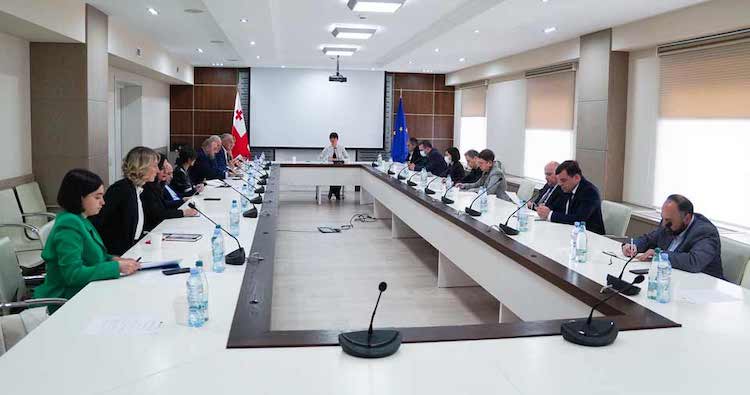State commission on persons missing from conflicts discusses challenges, visions for identification work

“Our goal is to further strengthen coordination, have more active communication with families and, through the neutral mediation of the Red Cross, work to improve the functioning of both national and humanitarian coordination mechanisms to find more missing persons and return them to their families,” the Minister said. Photo: 1tv.ge
A session of the interagency commission for finding and transferring remains of persons missing following armed conflicts in Georgia was held on Thursday to discuss current challenges and future visions of identification in the process.
Headed by Tea Akhvlediani, the Georgian State Minister for Reconciliation and Civil Equality, the session focused on the need to further improve the efficiency of the search process, to end the “uncertainty” of the families of the missing, the Ministry said.
Akhvlediani said the discussion had mainly focused on the findings and recommendations of the International Red Cross Committee, based on which the launch of a formal discussion was planned on issues related to increasing the role of the Georgian Government agencies involved in the programme.
Our goal is to further strengthen coordination, have more active communication with families and, through the neutral mediation of the Red Cross, work to improve the functioning of both national and humanitarian coordination mechanisms to find more missing persons and return them to their families,” the Minister said.
In 2010, two coordination mechanisms were established for the identification of missing people’s remains from the 1992-1993 war in Abkhazia and the 2008 Russia-Georgia conflict. More than 2,300 people are considered missing as a result of the two armed conflicts.
Remains of dozens of individuals were identified and returned to their families last year, with remains of 598 people being found and 219 of them identified as of December last year.
The remains of 10 individuals from the Abkhazia war were identified and laid to rest in July and August last year through the cooperation of Georgia’s Reconciliation Ministry and the ICRC, while the remains of eight more individuals were returned to their families in December 2021.
 Tweet
Tweet  Share
Share